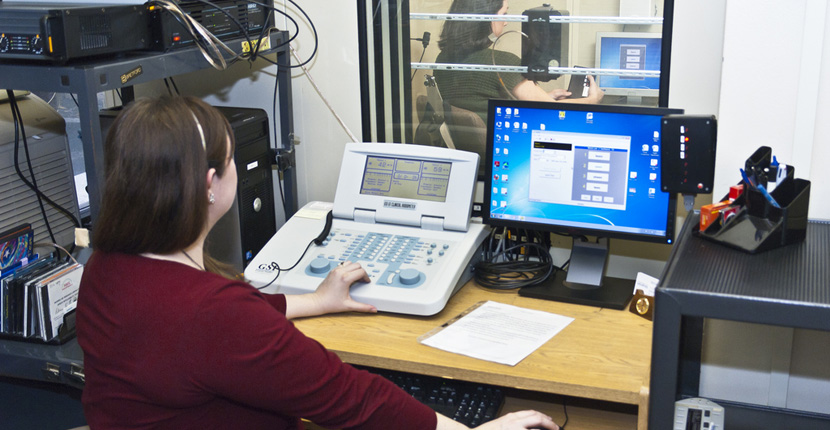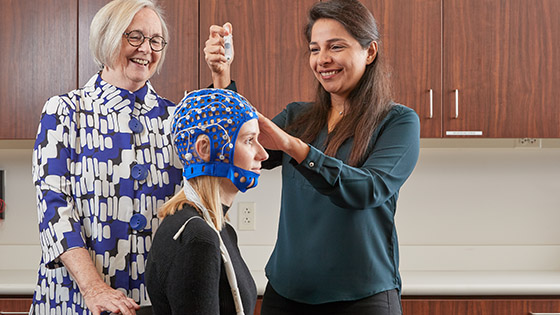
Hearing Research
Auditory Processing Laboratory
Directed by Deborah Moncrieff, Ph.D., the focus of the Auditory Processing Laboratory is on the diagnosis and treatment of amblyaudia, a common auditory processing difficulty that interferes with communication, language development, learning and reading in individuals across the lifespan.

Cochlear Implant Research Laboratory
The Cochlear Implant Research Laboratory is directed by Sarah E. Warren, Au.D., Ph.D., licensed audiologist. The vision of the Cochlear Implant Research Lab is to advance patient outcomes in adults and children with severe-to-profound hearing loss through the use of cochlear implants and other implantable hearing devices.

Cognitive Neuroscience of Hearing Lab
Directed by Kelsey Mankel, Ph.D. research in the Cognitive Neuroscience of Hearing Lab focuses on the dynamic interplay between auditory perception, cognition, and neuroplasticity. Employing a multifaceted approach that spans both basic science and clinical applications, she investigates how the brain encodes complex sounds like speech and music along the auditory hierarchy. Additionally, her work explores how this process changes with diverse experiences (e.g., music training, lifetime noise exposure) and the influence of individual differences in shaping auditory perception abilities.

Hearing Aid Research Laboratory
Directed by Jani Johnson, Au.D., Ph.D., the Hearing Aid Research Laboratory research involves the development and evaluation of diagnostic and remediation procedures to overcome disablements associated with hearing loss. Issues studied include the improvement of hearing aid fitting protocols, measurement of the help provided by hearing aids, and the development of clinical tools for facilitating rehabilitation.
Pediatric Auditory Research Laboratory
Directed by Thierry Morlet, Ph.D., the Pediatric Auditory Research Laboratory (PARL) is dedicated to the study of hearing ability in infants and children of all ages with varying degrees of hearing loss. The lab’s research focuses on improving the detection and diagnosis of different types of hearing loss, specifying individual functional hearing abilities, and developing personalized hearing loss management strategies. A primary goal of PARL is to ensure Deaf and Hard-of-Hearing children have access to the auditory information essential for speech and language development.
Vestibular Research Lab
Directed by Raghav Jha, Ph.D.


